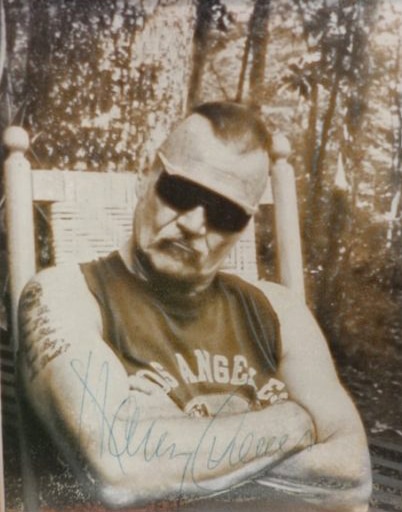 I’m just a few pages away from finishing Ted Geltner’s amazing biography of the writer Harry Crews: Blood, Bone And Marrow. It is an incredibly in-depth book about not just a man, but an artist who had more demons than he could handle. Some parts are incredibly sad, others are pretty hilarious. In other words, the life of Harry Crews was a lot like his books. Harry Crews isn’t as popular as he once was, which is a shame. A good amount of his books are not even in print anymore. I’ve never been able to find a copy of his second book, Naked In Garden Hills. I once had to pay an arm and a leg for a paperback copy of The Hawk is Dying, which I sadly lost in a flood a few years back. To be honest, it has been a while since I’ve reread any of his novels, but for a long time Harry Crews was an inspiration to me. And reading Geltner’s book has been a bit like stepping back in time for me—all the memories of the man’s books, me reading them and wanting to write like him, reading his essays and other people’s accounts of him. Harry Crews was a man larger than life. A cliché for most but plain fact for him. No one would have predicted Harry Crews to become a novelist. He was born into the poorest of poor sharecroppers in Georgia during the depression and grew up in a house where the only book was the bible. He suffered through a childhood bout with polio and later fell into a cauldron of boiling water. For years his body was scarred from the scalding water. After a long recovery and hard work, he became the first member of his family to graduate high school. And he barely graduated. It was in the Marines that Harry Crews discovered that each base had a library, and he described that as like throwing a turkey to a starving man. He went and read everything by Mickey Spillane, and eventually he read everything by Graham Greene. After his discharge, he enrolled in the University of Florida (though the college discouraged him) and decided he was going to learn how to write. I’m not going to go on and on about the rest of the man’s life—you can go read Ted Geltner’s book for that. But reading Mr. Geltner’s book is testimony that writers are MADE! Harry Crews learned how to write the way everyone learns: reading everything, and writing and failing and trying again. The blank page does not care how much privilege you come from, how tough your childhood was. The blank page is there to be filled. And it is only the most determined who can put down word after word after word. I can’t really remember how or when I first heard about Harry Crews, but I would have been a teenager. I remember seeing a picture of him and thinking, “Holy shit!” This guy wasn’t robed in corduroy and tweed. He had a sleeveless L.A. Raiders shirt, big biceps, sunglasses, and a huge tattoo of a skull on his arm. He looked like he was going to kick my ass and then beat up anyone who messed with me. And he wrote books! Lots of books, too. Most writers, when they’re young and starting out, look for folks similar to them. As a kid in Arizona, this was difficult for me. All the writers I found were either from Europe and dead or from the Northeast and old: Salinger, Updike, Cheever(he was dead, too). I think this is why I drifted toward southern writers. Even if they were describing places as green and humid with ghosts of the civil war and slavery everywhere, they also got at a lot of harshness that I recognized in my own splotch of desert. Pick-up trucks, guns, car crashes everywhere. I latched on to not just Faulkner (the king of southern literature) but Larry Brown, Flannery O’Connor, Tim McLaurin, and, of course, Harry Crews. All of Harry Crews’s novels deal with outsiders—the freaks and the strange. One man dedicates himself to literally eating a car. A town goes mad with the annual snake hunt. A man makes a living by knocking himself out. But while many may be shocked (or even disgusted) by Crews’s writing, his books are truly tragicomedies where everyone is trying to get by despite the problems life has handed them. Sometimes they succeed. Sometimes they don’t. Ultimately, Harry Crews remains the dark prince of grit lit—the balladeer of the broken and the bruised.
0 Comments
|
Archives
September 2022
William JensenWriter living in Central Texas. Categories |
 RSS Feed
RSS Feed
